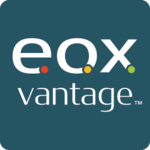Description

Freelo

HighQ
Comprehensive Overview: Freelo vs HighQ
To provide a comprehensive overview of Freelo and HighQ, we need to examine each product separately, focusing on their primary functions, target markets, market share, user base, and key differentiators.
Freelo
a) Primary Functions and Target Markets
Freelo is a project management and collaboration tool designed to streamline workflows, improve productivity, and enhance team communication. Its features typically include task management, time tracking, file sharing, and project planning tools. Freelo aims to offer a simple and intuitive interface that is suitable for both small teams and individual freelancers.
The target market for Freelo primarily includes small to medium-sized enterprises (SMEs), startups, and freelancers who require effective project management tools without the complexity and resource demands of more extensive enterprise solutions.
b) Market Share and User Base
Freelo operates in a competitive space of project management tools, competing against both established players like Trello, Asana, and Monday.com as well as other emerging tools. While exact figures on market share and user base might not be readily available, Freelo is typically more niche compared to these larger competitors, focusing on specific regional markets or demographics who appreciate its simplicity and cost-effectiveness.
c) Key Differentiating Factors
Freelo's differentiation often lies in its user-friendly interface and cost-effectiveness, making it attractive for smaller teams and individual users. It focuses on ease of use, offering essential project management features without over-complicating the user experience. Freelo might also provide customizable options and integrations suited for freelance or small business workflows.
HighQ
a) Primary Functions and Target Markets
HighQ is a sophisticated collaboration platform that combines document management, secure file sharing, enterprise social networking, and project management capabilities. It aims to enhance efficiency and collaboration within professional services sectors, such as legal, financial, and consultancy firms.
HighQ's target market primarily includes large enterprises, especially those in the legal and financial services sectors, where data security, compliance, and robust document management features are critical. It serves industries that require extensive collaboration across multiple teams and stringent regulatory adherence.
b) Market Share and User Base
HighQ is a significant player in the legal and professional services sectors, trusted by many top global law firms and financial institutions. While still competing with other enterprise solutions like Microsoft Teams, SharePoint, and specialized legal practice management software, HighQ has carved out a substantial niche within industries where its specific features and security measures are highly valued.
c) Key Differentiating Factors
HighQ differentiates itself through its focus on secure document management and compliance, integration capabilities with existing enterprise software, and specialized features for professional services. It offers advanced collaboration tools that are tailored to meet the rigorous demands of industries dealing with sensitive data and complex project requirements. Its ability to integrate seamlessly with other systems used in legal and financial environments is also a notable advantage.
Comparative Overview
When comparing Freelo and HighQ:
-
Target Market: Freelo targets smaller businesses and individuals looking for straightforward project management, while HighQ is geared towards larger enterprises in professional services requiring secure document management and collaboration.
-
Functionality: Freelo focuses on basic project management functions, whereas HighQ provides comprehensive collaboration solutions with advanced document management and security features.
-
Market Presence: HighQ holds a more prominent position in its niche sector compared to Freelo's broader but smaller-scale user base.
-
Differentiation: While Freelo emphasizes simplicity and affordability, HighQ boasts complex functionality tailored to industries with specific legal and compliance needs.
Overall, both platforms serve distinct purposes and audiences, with their success hinging on meeting the specific needs of their target markets.
Contact Info

Year founded :
2019
Not Available
Not Available
Argentina
http://www.linkedin.com/company/freelo-agencia

Year founded :
1992
+31 34 846 0411
Not Available
Netherlands
http://www.linkedin.com/company/highq
Feature Similarity Breakdown: Freelo, HighQ
As of my last update, Freelo and HighQ are both collaborative work management platforms designed to enhance productivity and streamline project workflows. Here’s a feature similarity breakdown for both:
a) Core Features in Common
- Project Management: Both platforms offer project management capabilities, including task creation, project timelines, and progress tracking.
- Collaboration Tools: Integrated tools for team collaboration such as file sharing, comments, and discussion threads.
- Document Management: Users can store, share, and manage documents within both platforms.
- Task Assignment and Tracking: Features to assign tasks to team members, set deadlines, and monitor task progress.
- Notifications and Alerts: Email notifications and platform alerts to keep users informed about project updates.
- Permission and Access Control: Manage access levels and permission settings for different users or teams within projects.
b) User Interface Comparison
- Freelo: Typically emphasizes a user-friendly and straightforward interface. It is designed for ease of navigation, often featuring a clean, minimalistic layout that simplifies project and task views for users. The interface might appeal more to smaller teams or less tech-savvy users due to its simplicity.
- HighQ: Often features a more robust and comprehensive interface due to its extensive feature set aimed at larger organizations, especially in legal and financial sectors. The UI can be more complex, providing advanced settings and configurations compared to Freelo. HighQ’s interface is often described as more customizable to suit different corporate styles and business needs.
c) Unique Features
-
Freelo:
- Widget Support: Freelo may offer widgets to customize workspaces, allowing users to personalize their dashboards according to their preferences.
- Simpler Onboarding: Emphasis on intuitive onboarding processes and templates that help small to medium-sized teams get started quickly without extensive setup.
-
HighQ:
- Advanced Data Analytics and Reporting: HighQ provides more in-depth analytics tools, which can be crucial for industries that require detailed reporting and insights.
- Integration with Legal Tools: It offers integrations tailored for legal firms, such as document comparison and legal project management functionalities.
- AI and Machine Learning Enhancements: HighQ may offer features that leverage AI for document automation and intelligent task management.
Each platform caters to different audience segments, with Freelo being suitable for smaller businesses or teams needing straightforward project management tools, and HighQ catering to larger enterprises requiring advanced features and integrations. Always check the latest versions and updates of each platform for any new additions or changes in offerings.
Features

Not Available

Not Available
Best Fit Use Cases: Freelo, HighQ
When evaluating Freelo and HighQ for project management and collaboration, it's essential to understand their unique strengths and ideal use cases based on the type of business, project requirements, industry focus, and company size. Here's a breakdown for both:
Freelo
a) Types of Businesses or Projects for Freelo:
- Small to Medium-sized Enterprises (SMEs): Freelo is particularly well-suited for smaller teams and businesses due to its user-friendly interface, affordability, and ease of adoption.
- Startups: Its straightforward functionality makes it ideal for startups looking to establish efficient project workflows without excessive complexity or cost.
- Freelancers and Creative Agencies: Freelo's features cater to individual freelancers and creative agencies needing effective task management, time tracking, and collaboration tools to manage multiple projects and client interactions.
- Remote and Distributed Teams: The platform is suitable for teams working remotely as it offers real-time collaboration tools that help maintain productivity and communication from different locations.
b) Scenarios for HighQ:
- Law Firms and Legal Departments: HighQ has a strong focus on the legal industry, offering specialized features like data rooms, legal project management, and contract analysis that cater specifically to legal practitioners' needs.
- Financial Institutions: Its robust security features and compliance with industry regulations make HighQ a preferred option for financial services that need to manage sensitive data and collaborate in a secure environment.
- Large Enterprises with Complex Requirements: HighQ provides advanced functionalities for enterprises that require sophisticated document management, seamless integration with other enterprise tools, and customizable workflows.
- Professional Services Firms: Those in consulting or advisory roles can benefit from HighQ’s ability to manage complex projects involving multiple stakeholders and strict compliance requirements.
d) Catering to Different Industry Verticals or Company Sizes:
Freelo:
- Industry Verticals: Freelo effectively serves industries such as marketing, IT, design, and consultancy where dynamic project management and team collaboration are essential. Its versatility allows teams from different sectors to customize it to their workflows.
- Company Size: Primarily targets SMEs and small teams within larger organizations that need a reliable yet uncomplicated tool to manage daily tasks and projects.
HighQ:
- Industry Verticals: HighQ is heavily oriented towards industries requiring high compliance and security standards, especially legal and financial sectors. It also supports other knowledge-intensive industries like healthcare and engineering with its robust collaborative features.
- Company Size: It caters to larger enterprises and professional firms needing sophisticated project management and document control capabilities across multiple departments and geographic locations.
Summary:
Freelo excels in environments where simplicity, affordability, and flexibility are paramount, making it ideal for smaller teams and creative industries. HighQ, on the other hand, stands out in sectors demanding enhanced security, compliance, and complex project management, making it the go-to choice for larger, heavily regulated firms.
Pricing

Pricing Not Available

Pricing Not Available
Metrics History
Metrics History
Comparing teamSize across companies
Conclusion & Final Verdict: Freelo vs HighQ
To provide a comprehensive conclusion and final verdict for Freelo and HighQ, we'll examine various aspects such as functionality, pricing, user experience, and specific use cases.
Conclusion and Final Verdict
a) Best Overall Value:
After evaluating all factors, Freelo offers the best overall value for startups and small to medium-sized teams looking for an affordable and user-friendly project management tool. Its straightforward interface and essential features make it suitable for teams that need efficiency without breaking the bank.
b) Pros and Cons:
Freelo:
- Pros:
- Cost-effective, especially for small teams or startups.
- Intuitive and easy to learn, reducing the onboarding time.
- Offers essential project management features like task management, collaboration tools, and time tracking.
- Integration with popular tools enhances its versatility.
- Cons:
- May lack advanced features that larger organizations require.
- Limited scalability for very large or complex projects.
- Customization options might not be as extensive as some competitors.
HighQ:
-
Pros:
- Robust feature set tailored for legal firms and highly regulated industries.
- Strong security features that are crucial for handling sensitive data.
- Advanced document management and collaboration tools.
- Scalable for larger enterprises or complex industry-specific needs.
-
Cons:
- Higher cost, which might not be justifiable for small or less demanding businesses.
- Steeper learning curve due to the breadth of features.
- Some users may find it overwhelming if they don't need all of its functionalities.
c) Recommendations for Users:
-
For Startups and Small Teams:
- Freelo is the recommended choice, providing essential tools without excessive costs. Its simplicity and affordability make it ideal for straightforward project management needs.
-
For Legal Firms or Regulated Industries:
- HighQ is the preferred option due to its specialized features that cater to these sectors. Its emphasis on security and compliance is crucial for handling sensitive information.
-
For Medium to Large Enterprises with Complex Needs:
- If budget allows, HighQ's advanced capabilities may provide the necessary tools for managing intricate projects and workflows efficiently.
-
For Users Seeking Extensive Customization and Integration:
- Consider the use of Freelo if the project scope is manageable within its feature set, but if there's a heavy reliance on document management and industry-specific tools, HighQ will better meet those needs.
Ultimately, the choice between Freelo and HighQ will largely depend on your organization's specific requirements, budget constraints, and industry focus. Evaluating what you truly need from a project management tool will guide you to the right product.
Add to compare
Add similar companies




